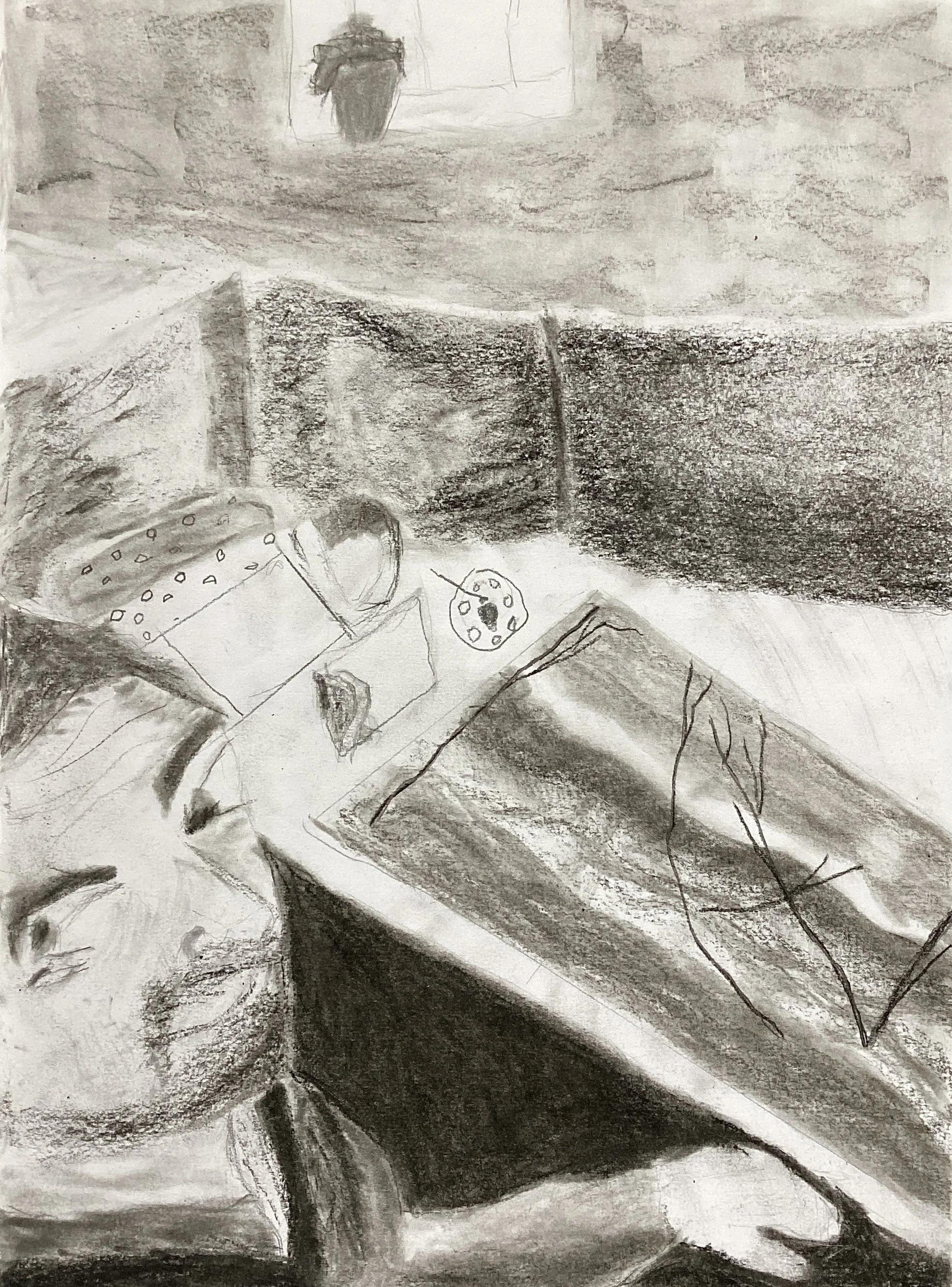Navigating the Connecticut Money Follows the Person Program: A Guide for Brain Injury Survivors
Are you or a loved one living with a brain injury in Connecticut and seeking to transition from institutional care to community-based living? The Connecticut Money Follows the Person (MFP) Program may be the solution you've been looking for. In this blog post, we'll explore how brain injury survivors can effectively navigate the MFP Program to achieve greater independence and quality of life.
The Intersection of Brain Injury and Substance Dependence: Challenges and Solutions in Community-Based Services
In recent years, the opioid epidemic has emerged as a significant public health crisis, affecting communities across the nation, including here in Connecticut. Amidst this crisis, another issue often overlooked is the link between substance dependence and brain injury. As providers of community-based support services, it's imperative to understand the complexities that arise when serving individuals with a history of substance dependence alongside a brain injury. In this blog post, we'll explore the challenges associated with this intersection and discuss strategies for effectively addressing these specialized issues.
Understanding Why Brain Injury Survivors Are Vulnerable to Telephone and Online Scams
Brain injury survivors in Connecticut and across the country often face numerous challenges as they navigate life post-injury, including vulnerability to telephone and online scams. In this blog, we explore the reasons behind why brain injury survivors are particularly susceptible to falling victim to scams in the digital age.
Navigating Recovery: Understanding Connecticut's ABI Waiver Program for Brain Injury Survivors
Sustaining a brain injury can be a life-altering experience, presenting numerous challenges that extend far beyond the initial injury. In Connecticut, individuals facing the aftermath of a brain injury often encounter barriers to accessing the healthcare they desperately need. In this blog, we delve into the unique challenges faced by brain injury survivors in Connecticut and explore strategies for overcoming these barriers to achieve optimal health and well-being.
Addressing the Concerns of Missed Screenings for Brain Injuries in Children: A Call to Action
As healthcare professionals dedicated to the well-being of our youngest patients, it is imperative that we address a concerning trend: many children with symptoms of brain injuries and concussions are missing out on vital screenings. This issue, highlighted in a recent national study, underscores the urgent need for heightened awareness and proactive measures to ensure every child receives the necessary care.
Understanding Sleep Disturbances After Brain Injury: Causes, Impacts, and Management Strategies
Sleep plays a vital role in our overall health and well-being, serving as a crucial time for rest, recovery, and cognitive processing. However, individuals who have experienced a brain injury often face significant challenges with sleep, experiencing disturbances that can exacerbate existing symptoms and impact daily functioning. In this blog post, we'll explore the complex relationship between brain injury and sleep disturbances, delve into the underlying causes, and discuss strategies for managing sleep issues effectively.
“Just Letters” A Guest Blog About Brain Injury - by Greg Pastore
It didn’t occur to me until days later that I had been in a ski accident and was totally paralyzed. A merciful doctor diagnosed me with locked-in syndrome. A blot clot formed in my neck, broke free, and entered my brain stem causing an ischemic stroke; I was lucky to be alive. He didn’t need to explain further – I was trapped in my body or ‘locked-in.’ What hope did I have to live a normal life? I’d ruminate on this until the words lost their meaning.
Navigating the Intersection: Trauma-Informed Care in Brain Injury Support Services
In the landscape of brain injury support services in Connecticut, the integration of trauma-informed principles is becoming increasingly crucial. Trauma, whether stemming from the injury itself or pre-existing experiences, can significantly impact an individual's journey toward recovery. In this blog post, we'll explore the imperative for incorporating trauma-informed care into brain injury support services and the transformative benefits it offers.
Choosing the Right Connecticut ABI Waiver Service Provider: Key Considerations
Selecting a Connecticut ABI Waiver Service Provider Agency is a significant decision that can profoundly impact the quality of care and support received by individuals with acquired brain injuries (ABIs). With numerous options available, it's essential to navigate the selection process thoughtfully. In this blog post, we outline crucial considerations to help you make an informed choice and ensure that you find a provider that meets your needs effectively.
The Vital Role of In-House Clinical Support Services in Connecticut's ABI Waiver Program
In the realm of brain injury rehabilitation, access to comprehensive clinical support services is paramount for achieving optimal outcomes. Within the Connecticut ABI Waiver Program, The Supported Living Group (SLG) stands out for its commitment to providing in-house clinical support through neuropsychologists and board-certified behavioral analysts. In this blog post, we delve into the importance of these specialized services and their profound impact on individuals navigating the complexities of acquired brain injuries (ABI).
Empowering Success: The Vital Role of Support Staff in Connecticut ABI Waiver Programs
At The Supported Living Group (SLG), our commitment to empowering individuals extends far beyond providing basic support. Our dedicated support staff play a pivotal role in helping Connecticut ABI Waiver I & II participants achieve their personal and professional goals. Let's delve into the critical role these compassionate individuals play in fostering success and independence.
Shedding Light on Brain Injury Awareness Month 2024: Understanding its Profound Significance
As we embark on Brain Injury Awareness Month in 2024, it's essential to recognize the profound importance of this annual observance. This dedicated month provides a crucial opportunity to raise awareness, promote understanding, and advocate for support systems for individuals affected by brain injuries. Let's delve deeper into why Brain Injury Awareness Month matters now more than ever.
Understanding the Impact of Memory Loss Associated with Brain Injury
Memory loss is a common and often significant consequence of brain injury, affecting individuals in various aspects of their lives. Whether the injury is caused by trauma, stroke, or other factors, the resulting memory impairment can have profound effects on cognitive function, daily activities, and overall quality of life
Finding Strength in Unity: Exploring the Benefits of BIAC's Support Groups for Brain Injury Survivors in Connecticut
For individuals navigating the challenges of life after a brain injury, finding a supportive community can be instrumental in their journey to recovery. In Connecticut, the Brain Injury Alliance of Connecticut (BIAC) offers a lifeline for survivors through its comprehensive network of support groups. In this blog post, we'll explore the invaluable benefits of BIAC's support groups and how they empower brain injury survivors across the state.
Addressing Concerns: Governors' Neglect of the Brain Injury Epidemic in Community-Based Programs
In recent years, the prevalence of brain injuries has reached epidemic proportions, affecting individuals of all ages and backgrounds. Despite the significant impact of brain injuries on individuals and communities, governors across the country appear to be overlooking this critical issue by failing to allocate sufficient financial support for community-based programs. This lack of investment not only undermines the well-being of brain injury survivors but also perpetuates systemic challenges in accessing essential services and support. In this blog post, we will explore the concerns raised by advocates and experts regarding governors' neglect of the brain injury epidemic and the implications for affected individuals and families.
Navigating the Medicaid Home- and Community-Based Services Waiting Lists in Connecticut: A Journey from 2016 to 2023
Access to Medicaid Home- and Community-Based Services (HCBS) has been a critical lifeline for millions of Americans, providing essential support to individuals with disabilities and seniors who wish to live independently in their communities. However, for many Connecticut residents, the path to accessing these vital services has been fraught with challenges, often manifesting in long waiting lists. In this blog post, we delve into the landscape of HCBS waiting lists from 2016 to 2023, exploring the factors contributing to these lists, the evolving policies, and the implications for individuals and families struggling with the impact of brain injury to secure support in Connecticut
Navigating Love After Brain Injury: Overcoming Challenges and Finding Connection
For brain injury survivors, the journey of finding love and companionship can be both rewarding and challenging. While love knows no bounds, the unique hurdles faced by survivors often require patience, understanding, and resilience. In this blog post, we'll explore some of the common issues encountered by brain injury survivors in the realm of dating and relationships, as well as strategies for overcoming them.
Empowering Artists and Artisans in the Brain Injury Community
Art has long been recognized as a powerful form of expression, offering solace, healing, and a voice to those facing life's challenges. In the vibrant landscape of Connecticut's Brain Injury community, InspireArtsCT stands as a beacon of creativity and resilience.
Navigating the Housing Crisis: Impacts on Individuals with Brain Injuries in Connecticut
The housing crisis in Connecticut is a multifaceted challenge that affects various segments of the population, including individuals living with brain injuries supported under the Department of Social Services (DSS) ABI Waiver Program. As the demand for affordable housing continues to outpace supply, those with brain injuries face unique obstacles in accessing suitable accommodations and support services. In this blog post, we'll explore how the housing crisis is impacting this vulnerable population and discuss potential solutions to address their housing needs.
Navigating the Pros and Cons: Neuralink's Potential Impact on Brain Injury Survivors
In recent years, advancements in neurotechnology have opened up new possibilities for individuals with brain injuries living in Connecticut. One such groundbreaking development is Neuralink, a brain-machine interface company founded by Elon Musk. While the potential benefits are exciting, it's essential to consider both the positive and negative outcomes for brain injury survivors living in Connecticut and across the country as we delve into the realm of neural interfaces.




















